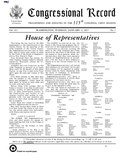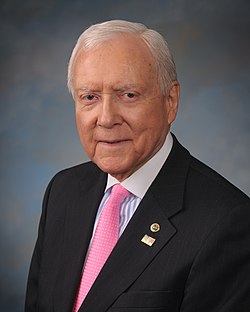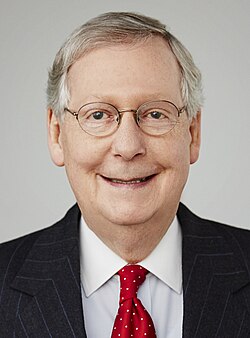| 115th United States Congress | |
|---|---|
114th ← → 116th | |
 United States Capitol (2017) | |
January 3, 2017 – January 3, 2019 | |
| Members | 100 senators 435 representatives 6 non-voting delegates |
| Senate majority | Republican |
| Senate President | Joe Biden (D) [a] (until January 20, 2017) Mike Pence (R) (from January 20, 2017) |
| House majority | Republican |
| House Speaker | Paul Ryan (R) |
| Sessions | |
| 1st: January 3, 2017 – January 3, 2018 2nd: January 3, 2018 – January 3, 2019 | |

The 115th United States Congress was a meeting of the legislative branch of the United States of America federal government, composed of the Senate and the House of Representatives. It met in Washington, D.C., from January 3, 2017, to January 3, 2019, during the final weeks of Barack Obama's presidency and the first two years of Donald Trump's first presidency. The seats in the House were apportioned based on the 2010 United States census. [1]
Contents
- Major events
- Major legislation
- Enacted
- Proposed
- Party summary
- Senate
- House of Representatives
- Leadership
- Senate 2
- House of Representatives 2
- Demographics
- Members
- Senate 3
- House of Representatives 3
- Caucuses
- Changes in membership
- Senate 4
- House of Representatives 4
- Committees
- Senate 5
- House of Representatives 5
- Joint
- Employees and legislative agency directors
- Senate 6
- House of Representatives 6
- Legislative branch agency directors
- See also
- Elections
- Membership lists
- Notes
- References
- External links
The Republican Party retained their majority in both the House and the Senate, and, with the inauguration of Donald Trump on January 20, 2017, attained an overall federal government trifecta, a position they had last attained in 2005 with the 109th Congress.
Several political scientists described the legislative accomplishments of this Congress as modest, considering that both Congress and the presidency were under unified Republican Party control. [2] [3] [4] [5]
This is the most recent Congress with Democratic senators from the states of Florida (Bill Nelson), Indiana (Joe Donnelly), Missouri (Claire McCaskill) and North Dakota (Heidi Heitkamp), all of whom lost re-election in 2018.
































